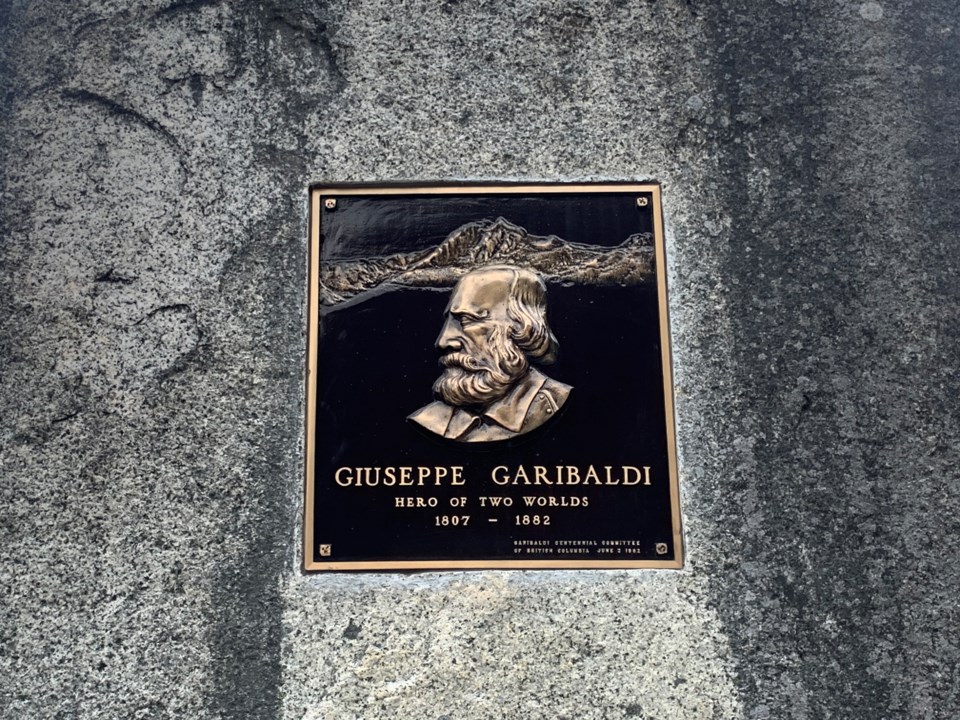Giuseppe Garibaldi (1807-1882) was a remarkable and fascinating man, who never set foot anywhere near here, and made zero contributions to the history and development of the area we live in. Known as the Hero of Two Worlds and also one of Italy’s greatest national heroes, Garibaldi helped liberate Italians from foreign rule, and unify the territories they inhabited into what ultimately became the nation of Italy.
In 1834, he was sentenced to death for his revolutionary efforts to unify Italy, and escaped to South America, becoming a trader and teacher. But when tyranny threatened his new homeland, he fought for its freedom as well, raising a legion of fellow expatriate Italians to protect Uruguay’s independence when a disgraced former president backed by Argentina attempted to seize power in defiance of Uruguay’s constitution.
In 1848, Garibaldi returned to Italy to fight in the unsuccessful First Italian War of Independence, was forced into exile again, and returned again in 1854 to become a farmer in Sardinia. But in 1859, revolution came calling again, and Garibaldi answered, fighting on the side of Italy in a war that most Europeans called “the Franco-Austrian War” because at the time “Italy” was still only a fantasy in the minds of patriots like Garibaldi. But today, we call it the Second Italian War of Independence -- thanks in part to Garibaldi’s contributions, there was no need for a third one.
Garibaldi opposed all imperial forces—including the papacy and the Catholic Church, which opposed Italian sovereignty—and supported people’s self-determination. In 1861, he offered his services to the Union side in the American Civil War—contingent on Lincoln declaring the abolition of slavery. But Lincoln himself was not yet as committed to ending slavery as Garibaldi—the Emancipation Proclamation was not issued until 1863. But such was Garibaldi’s international renown that his support boosted the morale of the Union side—the 39th New York Volunteers were renamed the Garibaldi Guard.
In light of Garibaldi’s record as an individual willing to risk his life to win freedom, not only for his fellow Italians but for oppressed people worldwide, I suspect he would be appalled to learn that his name has been used to erase the names, and implicitly the existence, of the oppressed people who have belonged here since long before there was an Italian language, let alone an Italy.
Among the many hills he was clearly willing to die on, he would have chosen Nch'ḵay̓ over “Mount Garibaldi.”
Indeed, if he had spent his years in exile here instead of Uruguay, we might well be living in the Skwxwú7mesh Republic today.
While Garibaldi is well worth remembering, he would not want to be remembered at the expense of the Skwxwú7mesh Nation.
James McKinnon
Squamish
Get Squamish news daily with our free newsletter. Sign up here.




